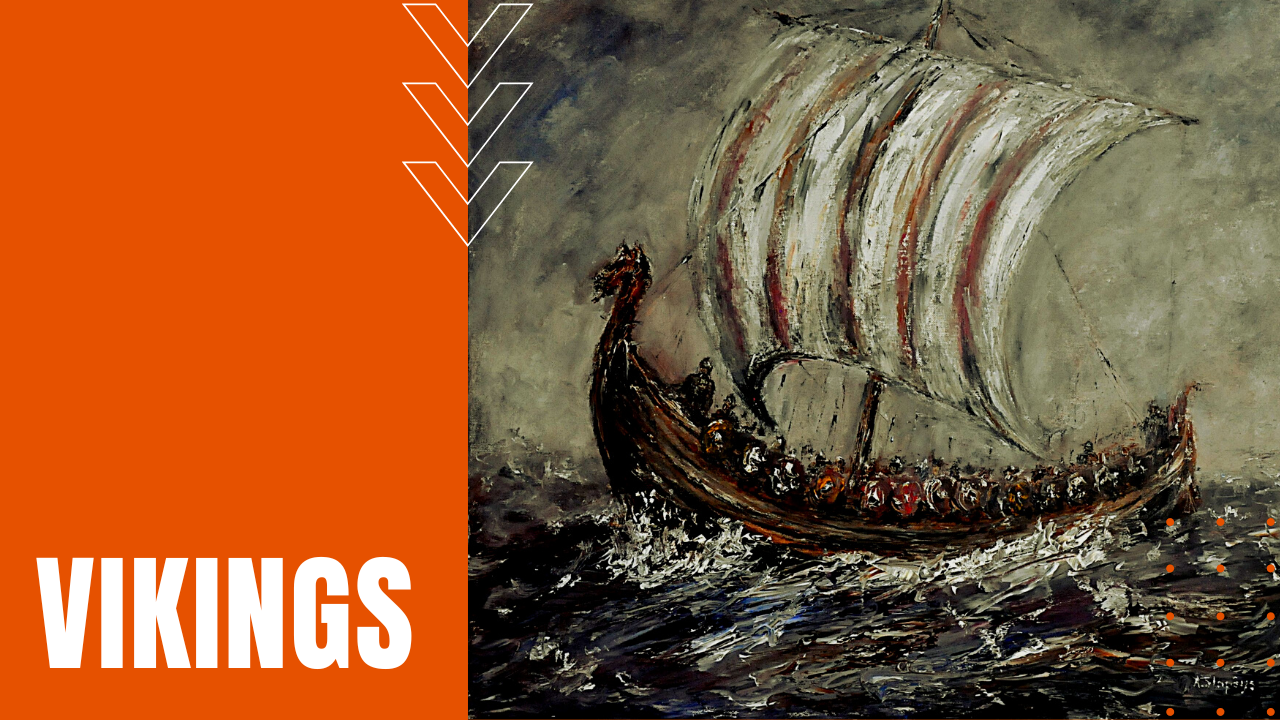Vikings: Culture, Conquest, Pirating and More

From the late 8th century to the late 11th century, Vikings or Norsemen sailed from present-day Denmark, Norway and Sweden, raiding, pirating, trading and settling throughout large parts of Europe, while making bold seafaring voyages as far afield as the Mediterranean, North Africa, the Middle East and North America.
Despite a shared language of Old Norse, Vikings lacked any common bond of lineage or nationalistic patriotism, and while Vikings lacked the Christian focus of the Europeans they invaded, their uninvited incursions had a profound impact on the early medieval histories of Scandinavia, Great Britain, France and Eastern Europe.
Norsemen The Master Mariners
As Europe grew richer during the late 8th century, Vikings at first traded highly-regarded Scandinavian furs in the major European trading centers of Dorestad in the Netherlands, Quentovic and Normandy in France—the later translating to the “land of the Northmen”—as well as Southhampton, London, Ipswich and York in England, where they learned about modern sailing techniques that soon made them expert mariners, which in turn allowed them to expand their pirating activities into the North Sea and beyond.
This included a brief settlement by Erik the Red’s son, Leif Erikson, in Newfoundland, some 500 years before Christopher Columbus made repeated landfalls into North America. They also founded major trading towns in the British Isles, including Dublin, Waterford, Wexford and Limerick, spreading Norse culture abroad, while returning home with slaves, concubines and foreign cultures that had a lasting influence on the genetic and historical development of Scandinavia.
Age of the Vikings Abruptly Ends
By the Time William the Conquerer was crowned king of England in 1066, splintered Scandinavian kingdoms had unified into the now Christian nation-states of Denmark, Sweden and Norway, bringing the age of the Vikings to an abrupt end, at the same time absorbing Viking influences into the broader culture of Christian Europe.
What remains of the Viking Age is their extensive body of literature, including the Icelandic sagas that celebrate the victories of their pirating ancestors, making the heart-stopping arrival of Viking longboats, a bygone nightmare for peaceful Europeans of the past.
